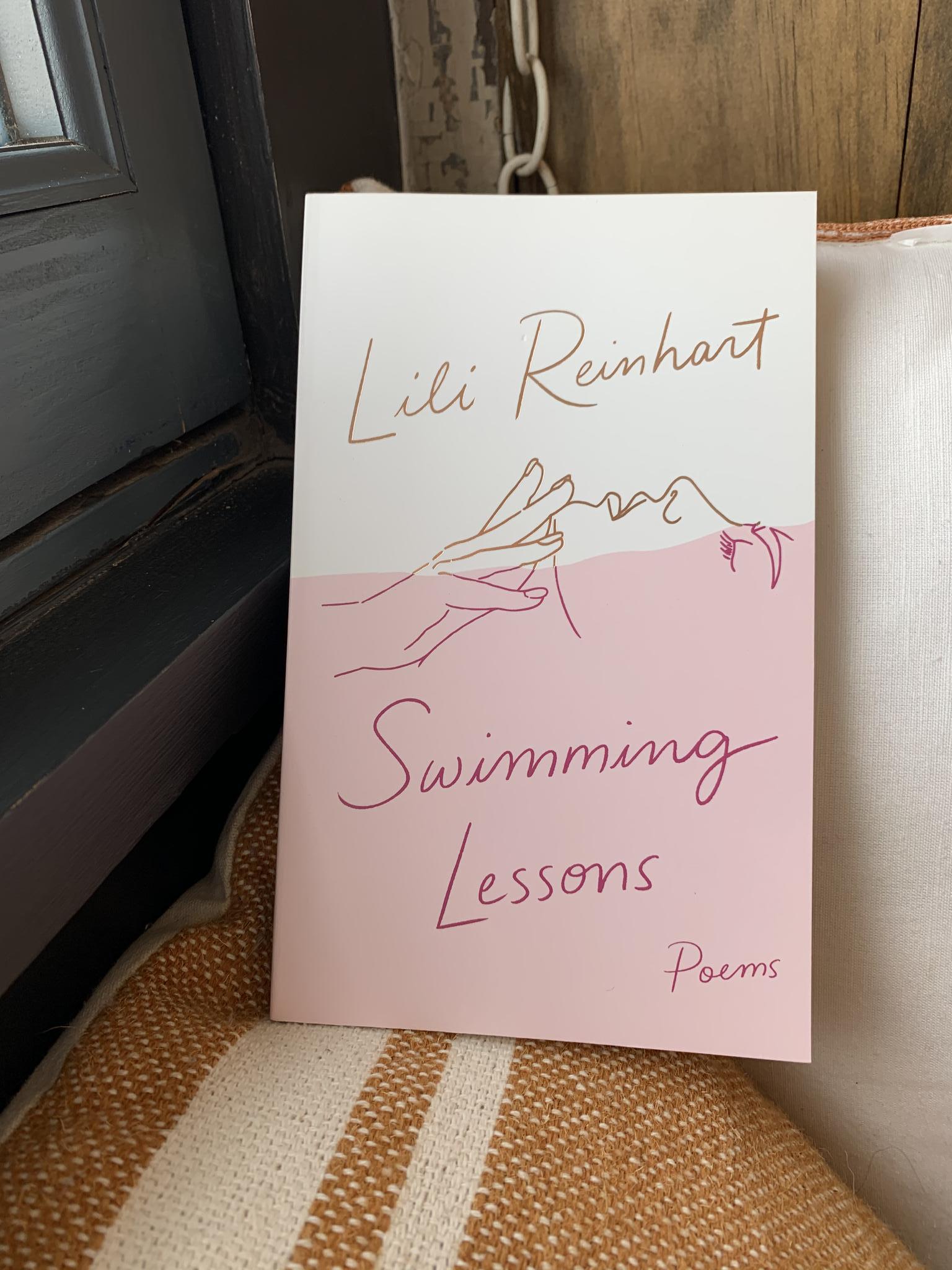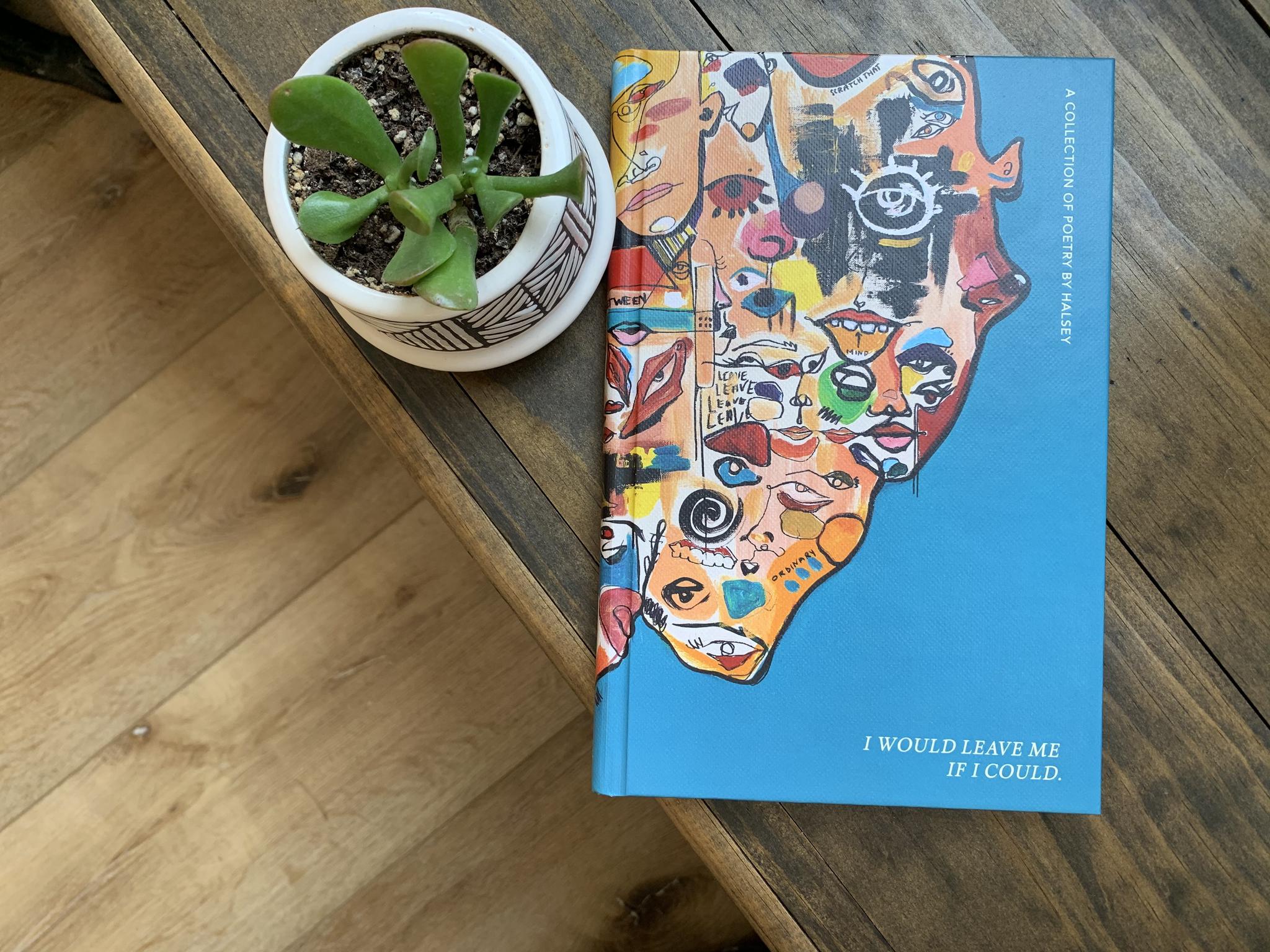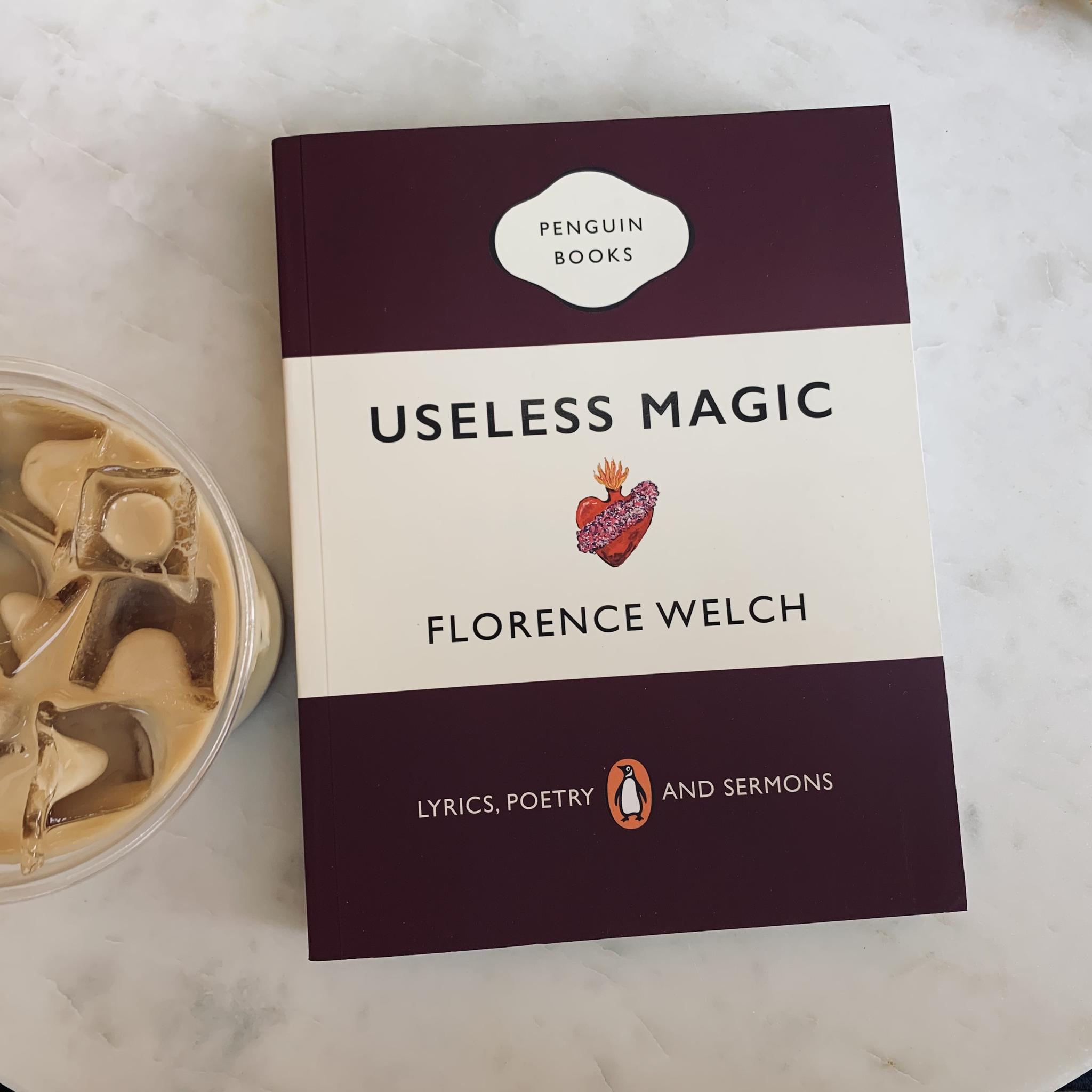Thoughts on Celebrity Poetry: Poetry is for Everyone
In the spirit of April being National Poetry Month, I’ve been thinking about what I’ve been reading and writing. I’ve been slowly growing my shelf of poetry books while working on my own writing, trying to gather words, ideas, inspiration, goals.
Specifically, I’ve been reading some celebrity poets, and I want to look at a few books I’ve acquired and have opinions on. That’s what a personal blog is for, right?

I got Lili Reinhart’s book of poetry titled “Swimming Lessons” in 2020 as a Christmas present. The Riverdale star wrote in her introduction, “I started reading poetry as a way to comfort myself through spells of depression. Discovering poems that closely reflected the thoughts in my own head became reassuring in a time when I felt severely misunderstood” (vii).
Reinhart’s debut collection of poetry is a thick book of relatively short poems. Most are untitled, giving the sense that the poems all blend together, never truly ending or beginning. It’s also filled with drawings by a tattoo artist named Curt Montgomery, which creatively illustrate the poems into simple silhouettes. The line drawings help visualize the curves and nuances of young love, intimacy and heartbreak.
To me, many of her poems read cliché. They remind me of work by Rupi Kaur, which I find extremely cliché. It’s very simple and easy to understand, which isn’t necessarily an issue, however, I think Reinhart could have edited more, strengthened some metaphors, and condensed some poems. Nonetheless, Reinhard is definitely coming into her own as a writer, as the back cover reads, and I’m interested to see what more she does.
Nuances of Celebrity Poetry
But something to consider is that Reinhard has a huge advantage over most poets, being that her fame lends itself nicely to getting a publishing deal. Celebrities don’t necessarily have to jump through hoops like earning a certain amount of prestigious acceptances, enduring rejections or being ghosted by editors.
This being said, I think celebrities are more heavily criticized for their poetry. In doing research for this post, I came across an article nitpicking specific poems by celebrities. I don’t want to link the article because I don’t want to give it more traction, but essentially university creative writing professors were given celebrity poems with the byline removed, and then given the space to criticize stanzas, line breaks, themes, and more.
This scrutiny over celebrity artwork, in my opinion, only perpetuates poetry as elitist. It’s a way for academia to gatekeep the greater literary community.
I don’t mean to say their work should be blindly praised, but writing poetry and contributing to art should only be encouraged. If celebrities can improve people’s appreciation or interest for poetry, then I think the more poetry the better. Someone felt something, wrote something and produced something. What’s the harm in that?
Forgetting the Writer
The artist Halsey is one of the biggest stars to release a debut poetry collection, and it’s one of my favorite books I bought this year. “I Would Leave Me If I Could” is a rich collection of 132 poems about Halsey’s childhood, traumatic experiences, passions, passing thoughts and other things. The poems are unique and vibrant, and I find something new to underline every time I thumb through the pages. Halsey talks about her poetry and more on Dax Sheperd’s podcast “Armchair Expert.”
It’s a cute, hardback book with cover art by Halsey herself, titled “American Woman.” A poem that stands out to me is “A Story Like Mine,” a long rhyming poem about abuse women face. The poem ends, “there is work to be done, / there are songs to be sung, / Lord knows there’s a / war / to be / won” (110).

“There’s stuff you can say in a book that you can’t say in an album, Halsey said in a Vogue interview. “When I sing, the writing is tainted by whatever I look like at that time, whoever people think I’m dating at that time, and whatever they’ve read about me in the press most recently. They build a composite of who they think I am, and then that’s how they interpret the work. But a book is faceless.”
Books are faceless, but they aren’t nameless. It’s obvious who the author is, but the poetry I’ve found to be successful has been the work that’s made me forget the writer completely. It’s the poetry that’s meant to be read out loud, repeated to friends, discussed at dinner, and contemplated before bed. When a celebrity accomplishes this, I’m glad I bought their book.
Advocacy for the Arts
I think celebrity writers have a responsibility to be advocates for the greater poetry community, with intentional attention to LGBTQ+, BIPOC, and AAIP poets. Their platform lends itself well to celebrate, promote and collaborate with other writers; therefore, if they aren’t working to give back, then their publications are taking away from others.
A celebrity doing this well, from my perspective, is my girlfriend Florence Welch. The singer/songwriter has always been a fan of the literary arts. She often shares poetry on her Instagram, and interacts with writers through her online book club Between Two Books.
In 2018, Welch published a collection of her song lyrics, poetry and sermons, accompanied by original artwork and handwritten notes. It’s not necessarily a poetry book since the song lyrics are all well-known and

pretty much publicly available. The poems and sermons, however, are new and very much worth the read.
Welch’s personal poetry is like reading the scraps of her complimentary hotel notepad. Stolen from the waste bin or cleaned from underneath the bed, the poems emerge from her mysterious and intriguing passing thoughts. She is sad, self-loathing, and demanding of the words on the page. They are somewhat few and maybe somewhat simple, but they seem to be exactly where they’re supposed to be: between the scraps and the songs.
Celebrities should use their platform to recognize struggling poets, poets who look and write differently than them, other living poets, poets with stories they could never tell. It's about lifting each other up, reading and sharing each other’s work. Welch accomplishes this with her fan-founded book club by recommending books by authors of color, hosting live Q&A sessions, and engaging with readers to reflect and build a community.
Without this crucial piece, we aren’t a community, we are writers in solitude, and that’s not what poetry is. That’s not what I want poetry to be.
The Future of Poetry and What’s Possible for Artists
After thinking about the poets I’ve chosen to focus on for this article, I notice that I’ve chosen only white, queer women as my focus. It’s possible I gravitate towards this demographic because I identify a white, queer woman, but I don’t want my shelf to be only writers who look and identify like me. I want to read black writers, trans poets, Asian American artists, and other people of different backgrounds.
A poet making huge strides for herself and for black representation is White House Poet Laureate Amanda Gorman, the youngest inaugural poet in U.S. history.
While she is not necessarily a celebrity poet in the way I’ve defined it here, I want to look at Gorman’s poetry because she is a poet turned celebrity. She’s garnered so much fame and attention after her reading of “The Hills We Climb” at President Biden’s inauguration. Her yellow overcoat and red headband have become iconic symbols of Gorman’s meaningful message to America. Gorman was also featured at the 2021 Super Bowl, another momentous moment for poetry expanding what’s possible for writers and artists.
After the inauguration, I spoke with my dad on the phone, and he mentioned Gorman’s poetry reading. My dad will be the first to admit he knows nothing of poetry or literature, but instead of talking about the new president, my dad wanted to talk about spoken art.
He said he thought of me while watching and of my own efforts as a writer. I was touched that he thought of me and got a small glimpse of what makes me so excited about poetry.
My dad, like millions of other Americans, was made excited about words because of Amanda Gorman. I find this so powerful, and I think it speaks to the future of poetry and the literary community: poetry is alive, poetry is powerful, and poetry is for everyone.

0 Comments Add a Comment?